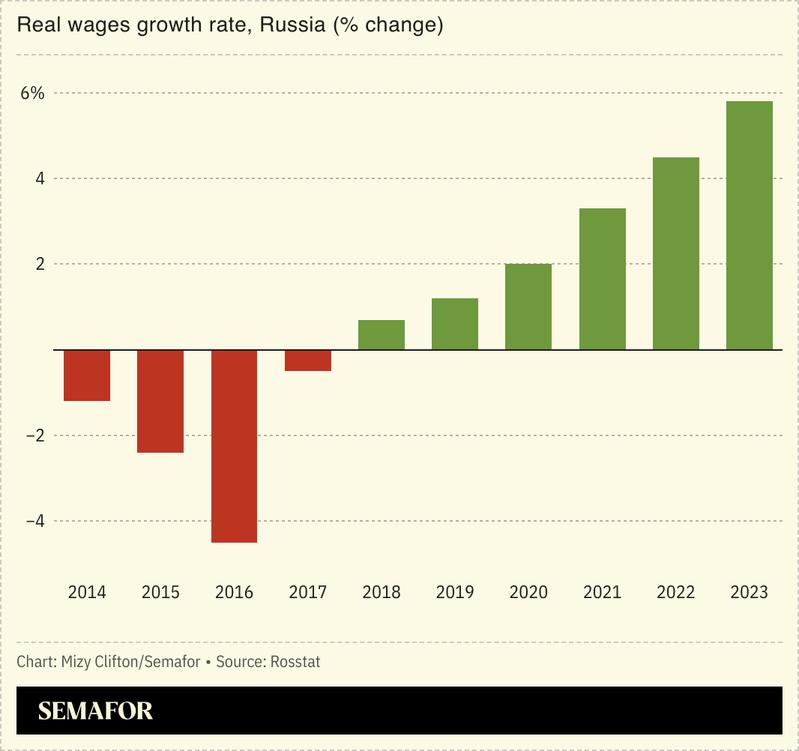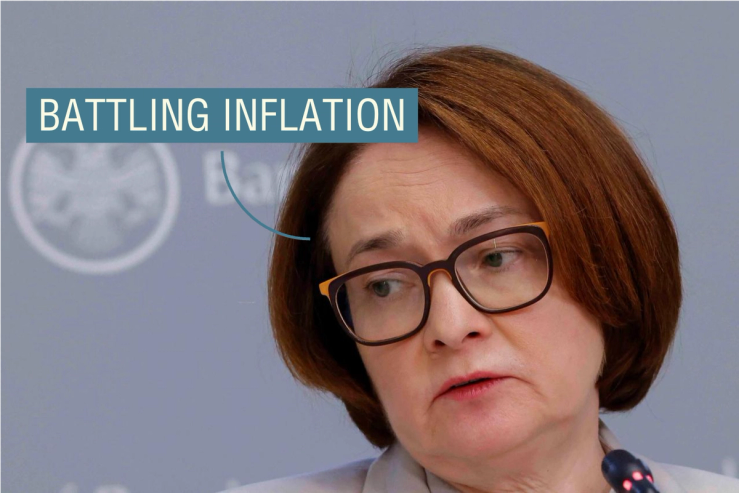The News
Russia’s central bank hiked its key interest rate to 18% on Friday as the country grapples with rising inflation, Reuters reported.
It came as Russian businesses are reportedly struggling to carry out transactions even with friendly countries like China and Turkey as US sanctions mount. Washington widened the scope of secondary sanctions in June in an effort to undermine Moscow’s attempts to circumvent blocks on key resources.
SIGNALS
Russia’s inflationary problems will likely continue for as long as the war does
Russia may continue to lose its battle against inflation “as long as the war goes on,” a former Russian central bank official told The Wall Street Journal, thanks to huge military spending, growing labor shortages, and rising wages. Ultimately, the central bank has “little, if any influence on fiscal policy, and no influence on demography,” an economist said. That real wages have grown by almost 14%, however, means many Russians aren’t necessarily feeling the pinch, and the country finds itself unexpectedly in the midst of a “consumer spending boom,” the Financial Times reported. But economists forecast a slowdown, and one Russian oligarch predicted that money would get trapped in the country, “resulting in exorbitant real estate prices, inflated stock market values and low quality of life.”

Banks may be vulnerable to sanctions, but workarounds are possible
International sanctions regimes mean Russian businesses now face cross-border payment delays of 10-16 days, a Moscow-based analyst told Bloomberg, and transactions are often only possible through intermediaries. Banks, which are more vulnerable to sanctions than companies, may be particularly worried: “If you scare them, banks will withdraw not just one step from the red line, but a full half of a kilometer,” an economist told The Bell, an independent Russian business news site. Although fewer banks in China are now willing to risk retribution for trading with Russia, smaller banks continue to operate “below the radar,” Reuters reported, and are adapting by facilitating payments through cryptocurrencies.



